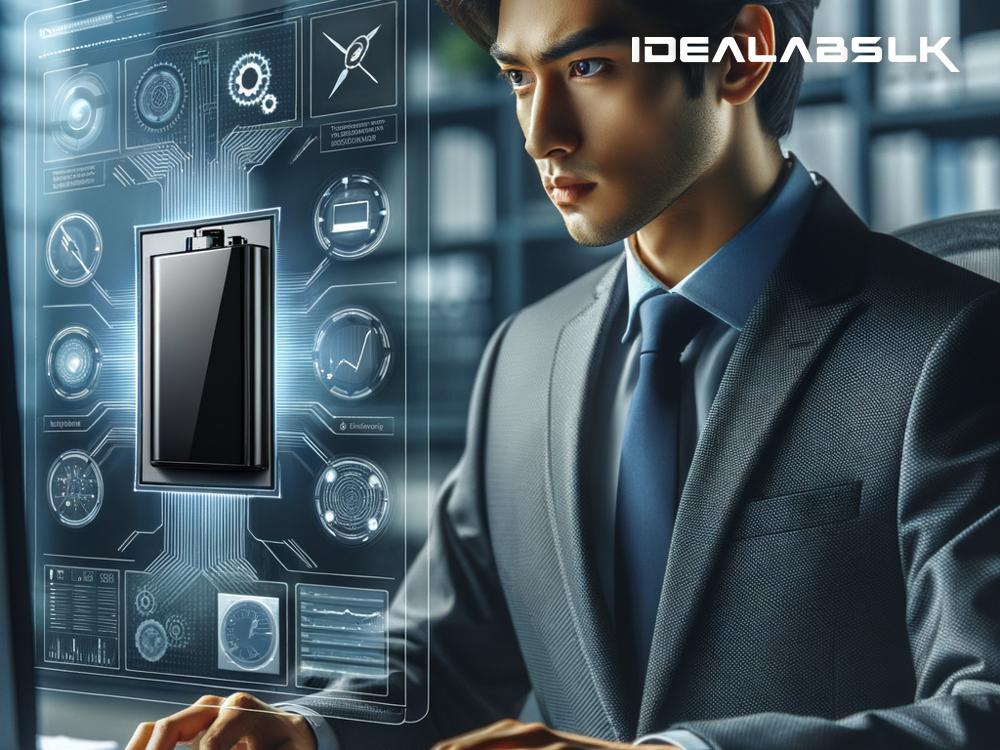In today's fast-paced world, ultra-portable devices like smartphones, smartwatches, and laptops have become our constant companions. These gadgets help us stay connected, work on the go, and keep entertained, but they all share one common challenge: battery life. Keeping these devices charged and ready to go has become a significant concern for most of us. However, the integration of Artificial Intelligence (AI) is revolutionizing how these devices manage and optimize their battery life, making our tech lives significantly easier and longer-lasting. Let's break down how AI is making this possible, in simple terms.
Understanding AI
Before delving into the specifics, it's important to grasp what AI is. Artificial Intelligence, in the simplest terms, refers to the capability of a machine or computer to think, learn, and make decisions like a human. AI can analyze patterns, learn from experience, and make predictive decisions, which is why it's becoming a game-changer in optimizing battery life for ultra-portable devices.
How AI Enhances Battery Life
-
Learning Usage Patterns: Just like a friend who knows your coffee order by heart, AI learns your device usage patterns. It pays attention to when you typically charge your device, the apps you use the most, and when you're likely not to use your device (like when you're sleeping). With this information, AI can make smart decisions, such as closing unnecessary apps running in the background or reducing power usage when you're less likely to use your device, thereby extending battery life.
-
Adaptive Brightness and Power Saving: Ever noticed how your screen brightness changes according to your environment? That's a basic form of AI at work. AI algorithms can adjust your device's brightness more efficiently based on the surrounding light conditions and your content viewing preferences, thus conserving battery power. Similarly, by analyzing your usage patterns, AI can activate power-saving modes at the most optimal times, ensuring your device conserves energy without affecting your user experience.
-
Optimizing App Performance: Not all apps are created equal in terms of power consumption. AI can identify which apps drain your battery the most and limit their background activity or advise you to close them when they're not in use. This kind of smart monitoring helps in significantly extending your device's battery life.
-
Battery Health Monitoring: AI doesn't just stop at optimizing how your battery is used; it also looks after the battery's health over time. By analyzing charging patterns and the battery's temperature, AI can suggest the best times to charge your device and how to keep your battery in top condition for a longer lifespan.
-
Predictive Analysis for Charging: One of the coolest things AI does is predict future usage and charging opportunities. If it knows you have a long day ahead with limited charging opportunities, AI might suggest an early top-up or optimize your device's settings to ensure the battery lasts throughout the day.
Real-World Benefits
The benefits of AI in optimizing battery life go beyond just convenience. For one, it helps in reducing the environmental impact by extending the lifespan of the device's battery, thus cutting down on waste. Secondly, it supports a better user experience; nobody likes being tethered to a charging cable or constantly worrying about their device running out of juice. Lastly, for emergency situations, having a device that can intelligently conserve power could be a lifesaver.
The Future is AI-Powered
As AI technology continues to evolve, we can expect even more innovative solutions to battery life optimization in ultra-portable devices. We're talking about devices that can seamlessly adapt to our lifestyles, predict our needs, and manage resources in the most efficient way possible, all while keeping the user experience smooth and uninterrupted.
In conclusion, the integration of AI in managing and optimizing battery life is a significant leap forward in our reliance on ultra-portable devices. It not only enhances the usability of these gadgets but also nudges us a step closer to a future where our tech truly understands and adapts to our personal needs. As we continue to embrace AI in various facets of our lives, one thing is clear: our devices are becoming smarter, and so are their ways of keeping themselves alive.

